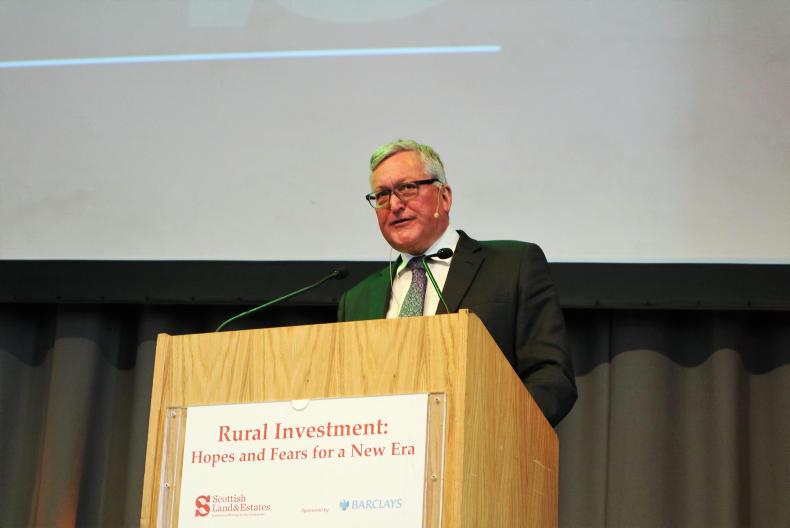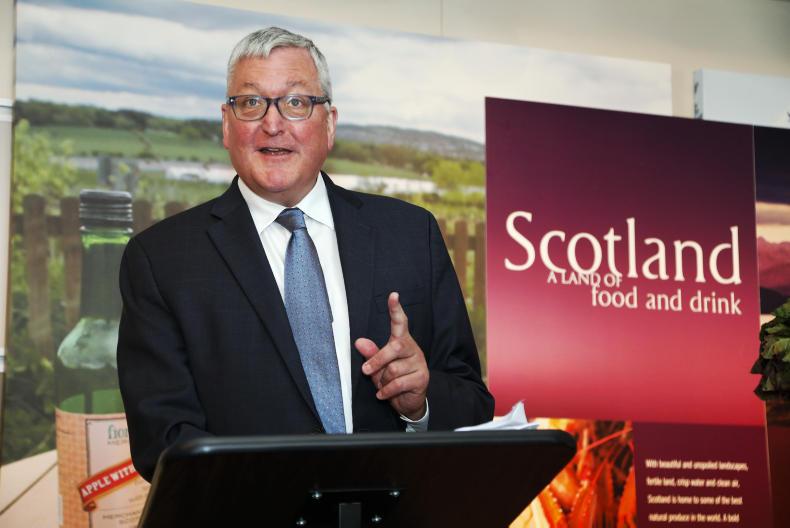In part two of our GM series Cabinet Secretary for the Rural Economy and Connectivity, Fergus Ewing MSP sets out the Government’s position on Genetic Modification.
“The Scottish Government is opposed to the cultivation of Genetically Modified (GM) crops in Scotland.
“On this basis, we took advantage of EU legislation, which enabled Scotland to opt out of growing GM crops. This decision was taken to safeguard our global reputation for producing high-quality, natural food and drink.
“Our policy is precautionary: we acknowledge that cutting-edge GM science is undertaken in research laboratories across Scotland, but we want to prevent the cultivation of GM crops in the open air.
“We recognise science is undoubtedly an important driver of innovation in delivering agricultural and environmental outcomes, and are committed to enabling and supporting such research in Scotland. We also have a responsibility to consider wider socio-economic factors too.
“Scotland’s food and drink sector contributes around £14bn/year to our economy. The provenance of this produce is key to both its domestic and international success and it is essential that we do all we can to protect its clean, green reputation.
“An example of this is where three quarters of Scottish seed potato exports – worth some £60m/year – require specific confirmation that they are GM-free.
“Allowing GM potatoes to be grown in Scotland could therefore have a hugely damaging economic impact on this important sector.
“Indeed, our position on the cultivation of GM crops is in line with mainstream European opinion. Germany, France and Italy all support a ban on GM crops. Like Scotland, Northern Ireland and Wales have also spoken of their ambition to protect their regions’ reputation of having a clean, green natural environment.
“There is also no clear evidence of any consumer-led demand for GM products in Scotland.
“As such, we will continue to seek to protect our food and drink sector’s international reputations by continuing to ban the cultivation of GM crops in Scotland for the lifetime of this parliament.
“However this stance, like so many other policy areas under my remit, is directly threatened by Brexit.
“While I welcome the UK Environment Secretary Michael Gove’s past utterances around his intention not to weaken the environmental protections we have in place, through being a member of the European Union, and not lowering environmental or agricultural standards when seeking international trade deals, these public statements are often caveated.
“During a World Wide Fund speech last year for example, Mr Gove, while not mentioning GM specifically, placed a strong emphasis on science as being the root of environmental policy. As I have said before, science is important, but all the consequences and impacts, including evidence from other disciplines, need to be considered in any future policy development.
“I have therefore written to the UK Government, seeking assurances that the current GM opt-out provisions that we have chosen to implement under EU legislation will continue to exist post-Brexit and that the UK Government will not attempt to impose the cultivation of GM crops in Scotland against the Scottish Government’s will.
“At the same time, it is vital that the labelling of GM food and feed products is not weakened so that consumers can exercise choice.
“While Mr Gove has sought to reassure me on these points, our negotiations with UK Government over the terms of the EU Withdrawal bill tell a different story.
“What this serves to highlight, is that when the UK leaves the EU, and EU competencies are repatriated, it is vital that competence for agriculture and environmental policy, including approaches on GM, transfer to Scotland in full.
“It is only through such a transfer, that we can continue to protect our global reputation for quality and provenance within our natural larder and safeguard and grow the economic success of Scotland’s food and drink.”










SHARING OPTIONS